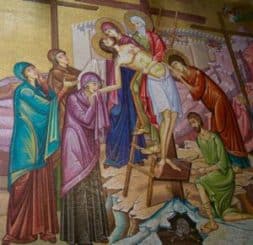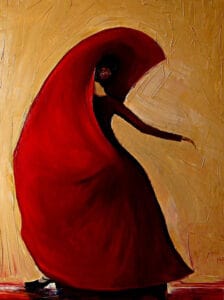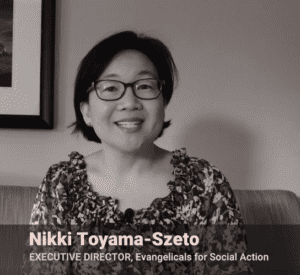
The sun kissed the tips of cathedral crosses. It was just after 5:00 AM. Shadows shortened as we walked the narrow streets towards the gates of the Old City. Our local Palestinian guide shouldered our large, wooden cross. Fellow U.S. travelers held solemn prayers that carried the promise of a full day dawning in Jerusalem.
This was the Sunday that twenty-eight of us had crossed the Atlantic to experience. We yearned for the geographical reality and spiritual grace of the Land of the Bible. This was the early light that guided our steps as we would pray through the Way of the Cross where Jesus Christ was forced to his carry his cross to his crucifixion during Roman times.
We continued silently, moving single file past unopened shops. Once in a while, looming iron gates connected imposing, modern-looking rock walls as we approached Herod’s gate, the gate that would allow us into the Old City. Both sides of the street blocked us out, yet gave us glimpses of random ruins peeking above the soil beyond these walls. Some places had been excavated sixteen feet below to expose Herod’s roads, and walls that date back to Jesus’ time.
These old rock walls and roads were coffins holding on to the past. Even coffins eroded like shifting sands. Where were those roads heading? What were these walls blocking out? What is it in our nature that still wants to build a wall?
What is it in our nature that still wants to build a wall?
We kept walking, as I reviewed in my mind each sorrowful Station of the Cross: Jesus was judged. He received His Cross. He fell for the first time. Jesus met His mother. Simon of Cyrene helped Him carry the Cross. Veronica wiped Jesus’ brow. He fell for the second time. He talked to the weeping women. He fell for the third time. He was stripped of his garments. Jesus was crucified. He died on the Cross. Jesus’ body was taken down from the Cross. Jesus’ body was placed in the Tomb.
In a way, I felt humanity had walked this mystical path for centuries by carrying burdens in our cracked feet and ailing hearts. We were all citizens of Jerusalem, yet were caught together in a net of dire conflict and contradictory justice. Today we would physically move as one body through the painful stages that led to ultimate healing and Jesus’ resurrection. We were searching for the outward, visible signs that pointed to Christ’s inward, spiritual grace.
Our guide stopped us at the last intersection before we crossed the street to the Old City Gate. An Israeli barricade of metal panels walled us off. Five young Israeli police, armed with assault rifles, questioned our guide in Hebrew. I heard one familiar word, our guide’s name, Iyad, and felt the tenseness as time passed without movement. Why weren’t we being allowed in? These Stations of the Cross were for the entire world to experience in peace. Had we reached prematurely Jesus’ first Station of being judged falsely?
Iyad turned to us and said, “They will not let me in. You can go in as tourists, along with people who have a business inside the Old City, but I cannot because I am Palestinian.” We stood in shock and silence. “Can I have a priest come up here with me,” Iyad continued, “to explain to the Israelis that it’s been my business for over 30 years to lead people to worship?”
One of our five Episcopal priests went forward to speak in English on Iyad’s behalf. We were at a standstill. Then Iyad looked back at us and continued, “Friends, this is the first time this has happened. These guards have turned me away from my own city. They are preventing me from conducting my business in Jerusalem.” The priest explained to the guards that he’d previously brought six different church groups from all over the U.S. and always had Iyad as his guide because he was a key partner in explaining Christ’s message. An Israeli police woman in her early twenties said in English, knowing Iyad understood, “Tell your guide we don’t speak English.” She added that he could not enter because they didn’t know who he was, but tourists were welcome.
How did the guards know who foreigners were, but not a Palestinian who entered the Old City and drove the streets of Jerusalem daily? Iyad turned to us again. “You may go in, but I cannot.” Silence ensued. Then, as a group we replied, “We will not go in. We stand together with you, Iyad.”
We were searching for the outward, visible signs that pointed to Christ’s inward, spiritual grace.
We left in silence, following Iyad as he lifted the large, wooden cross that dug a little deeper into his shoulder. We were yoked with his pain, his quiet dignity and calm assurance though a prisoner in his own land. Jesus’ image of taking up the Cross flashed through my mind: the second Station. “We can go back to St. George’s Cathedral and pray together each Station of the Cross.” Icons of each stage surrounded the inner walls of the church.
As we proceeded through the painful way of Christ, each of us read aloud the pertinent scripture and a powerful prayer. Our movement together, largely in silence, was palpable. We were one body in the blood of Christ. In this moment, Iyad’s life struggle became real to me. We had been embraced in the home of a Palestinian who, today, had just been denied the simplest natural justice of conducting his daily business in Jerusalem. And this happens constantly to Palestinians, through the Israeli control of water, highway limits, or any other economic source for growth.
I grasped the eternal conflict that raged throughout the centuries in this harsh holy land and, more importantly, the recent Israel/Palestine conflict since 1967. Palestinians deserve the same identity, dignity, security, and land as those of the Jews. Jews deserve the recognition of the Holocaust and the diaspora. Both need to steadfastly seek a balance of power and reconciliation without domination.
I was now caught in this conflict where Jesus was crucified. The only reprieve was that in this same place He rose from the grave. Gatekeepers could no longer hold ground nor could lands remain divided. Jesus brought grace and peace. This is our assurance.
Dear God,
We pray for Palestinian Christians who are prohibited access to Jerusalem. Give them the strength to be bearers of your love even as they face discrimination and hardship. We look forward to the day when the city of Jerusalem will be known not for division, violence, and walls but for radical reconciliation, forgiveness, and justice. Until that day let us be persistent in desire and action towards equality for all those living in the land between the river and the sea. May all efforts be rooted in the work of Jesus, whose death and resurrection reconciled us to God and enable us to reconcile with each other even in the face of the worst grievances. May it be on earth as in Heaven.
Amen.
This article originally appeared at Prayers for the Holy Land. Prayer by Michael Santulli, Intern, Churches for Middle East Peace.
Would you like to spend Christmas in the Holy Land?
CSA’s Micky ScottBey Jones is coordinating the Sumud Freedom Tour, in partnership with Holy Land Trust and Nonviolence International. From December 21st through January 3rd, an intimate delegation of people interested in faith-rooted activism will travel to Israel/Palestine to spend time co-learning about different justice issues worldwide, strategic building across movements, and participation in nonviolent solidarity actions.
This tour will provide you with an opportunity to develop deeper understandings of justice in a multi-faith, multi-ethnic, multi-racial and multi-struggle context. Do you want to connect with international organizations, broaden your work abroad, and deepen your relationship with the work of CSA? Sign up today!


